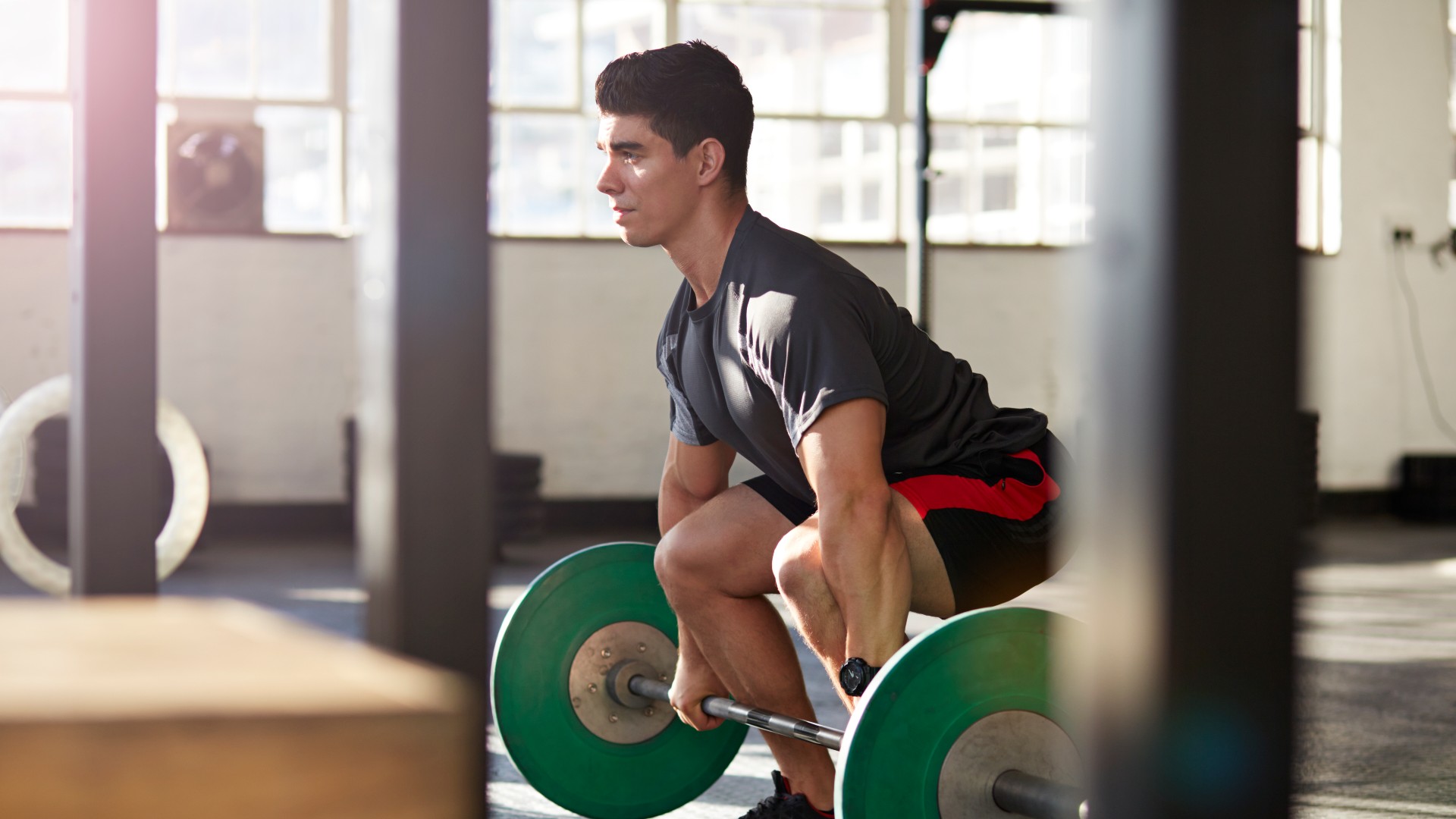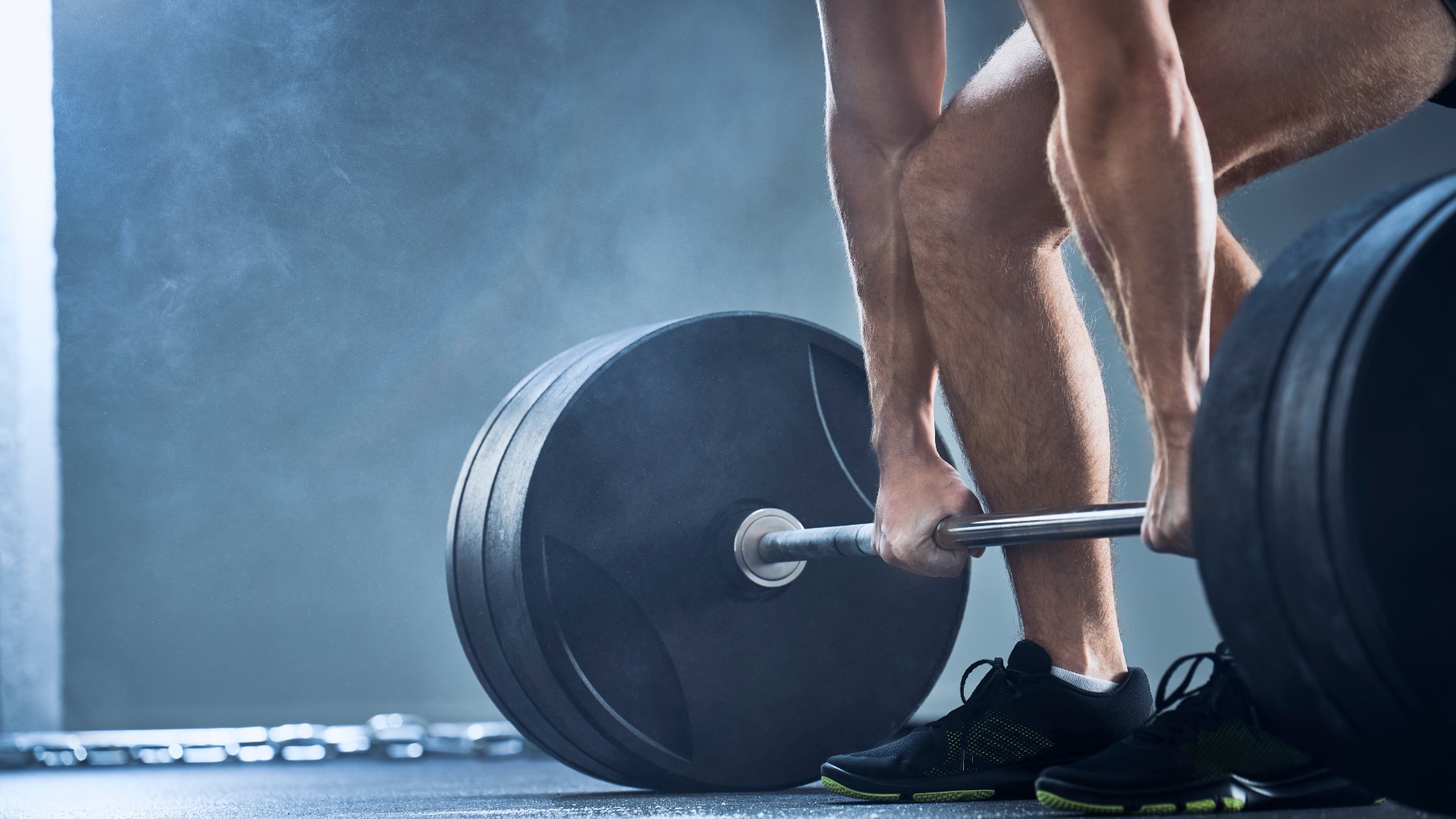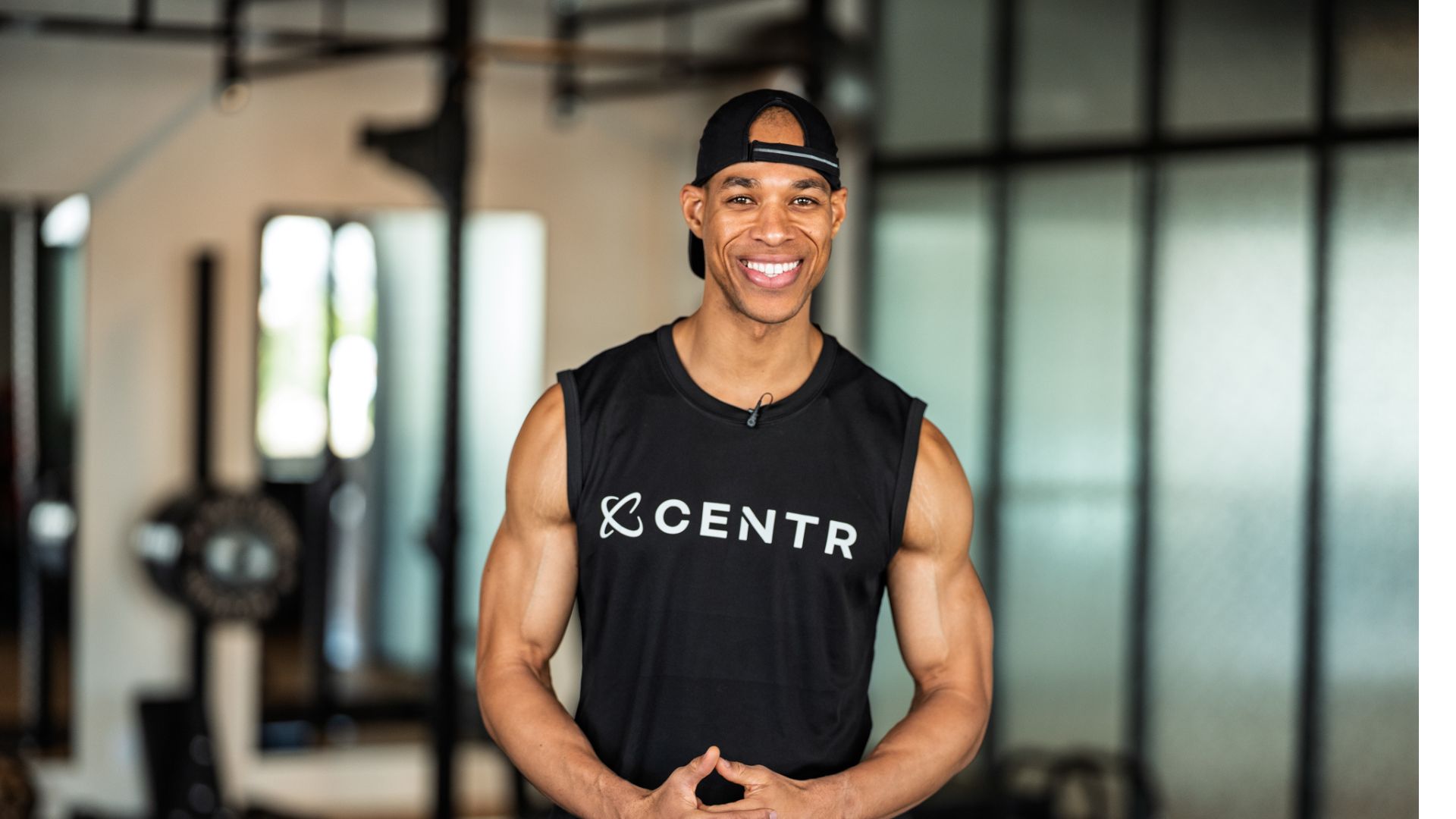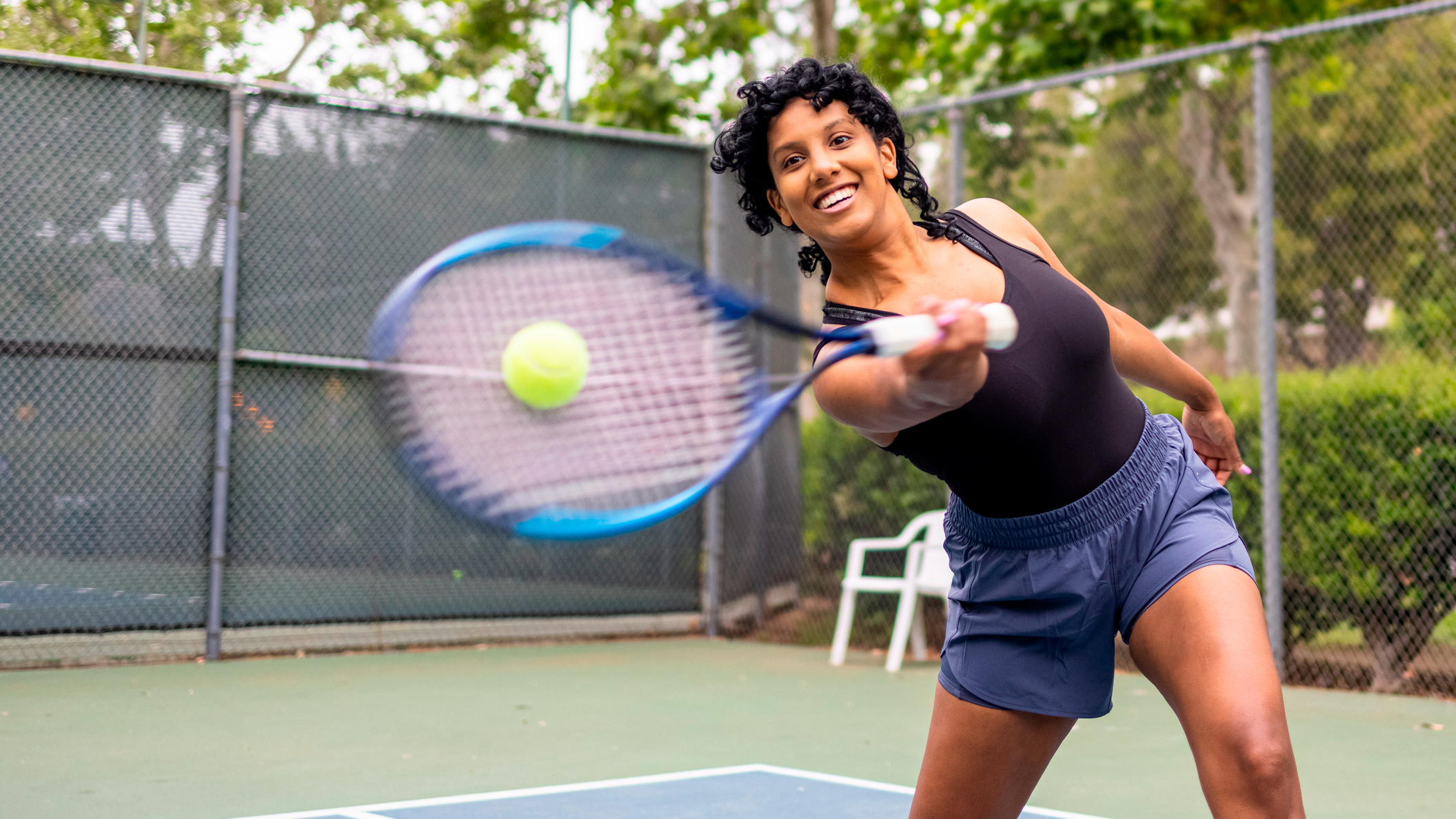9 reasons why deadlifts are an essential exercise
Deadlifts offer a multitude of benefits - so it’s time to include them in your workouts, pronto


There‘s a reason why deadlifts have been dubbed 'King of the Lifts'. Well, actually, there’s several reasons.
Deadlifts help build strength, work several muscles in one hit, and can improve grip strength - to name just a few benefits. This makes them an essential exercise to incorporate into your workout routine.
Gok Yesodharan is a personal trainer, instructor at London’s Core Collective and assistant general manager at Virgin Active. He says that deadlifts challenge every muscle in your posterior chain (the muscles that run up the back of your legs and back) and your core - but only when performed correctly and safely (read our guide on how to deadlift for a complete guide to correct form).
As with any weight bearing exercise, form is key when performing deadlifts to avoid injury.
‘While the reward for doing deadlifts is great, there is some risk,’ says Gok. ‘Beginners might have a learning curve in keeping the spine neutral throughout the lift. This is where asking for help from a coach or PT can do wonders. Once you get the form and the key drivers of the move ticking, then you're ready to load the weight.’
Conquered your form and ready to build a strong unit? Here are 9 reasons why deadlifts are an essential exercise…
1. Deadlifts work a lot of muscles at once
Deadlifts are a compound move - that is a move that works multiple muscle groups at the same time. With deadlifts, you're working the glutes (bum muscles), quads, hamstrings and the erector spinae, the deep muscles in your back.
Get the Fit&Well Newsletter
Start your week with achievable workout ideas, health tips and wellbeing advice in your inbox.
Gok adds that when worked correctly into your exercise regime, deadlifts can even stimulate a cardio response - with zero impact.
2. Even beginners can do them
New to deadlifts? Gok says that a trap bar deadlift is a great place to start, as they allow you to keep a healthy spine position owing to the 'absolute medial load of the weight when you stand in the trap bar’.
What’s more, gripping a trap bar is significantly safer, and reduces the risk of bicep tears that can sometimes occur when using a mixed grip on a straight bar.
He adds: ‘The trap bar sits a little higher up, so has greater transferable power to sports like basketball or American football.’
Trap bars are also useful to use if you want to fix your form when it starts to go awry.
If you don't have a trap bar but don't want to go straight in with a barbell, a happy medium is to use a pair of dumbbells. See our guide on how to do a deadlift with dumbbells for more information on form and technique.
3. Deadlifts build your butt
Hoping to hone in on your derrière? Try the sumo deadlift.
‘In this variant, your legs are a bit wider and your hands are narrower,’ says Gok. ‘The wide foot position allows for a more vertical spine, hence reduced stress on your lumbar spine (lower back).’
He adds: ‘The external rotation on the hips allows greater emphasis of work on the glutes and inner quads.
‘There are few competitor moves that allow you to build glute strength the way deadlifts do.’
4. And build those thighs!
Hoping for that lean look in the front of your legs? The deadlift can help with that!
In fact, incorporating a Romanian deadlift into your workout offers an even better way to work those hamstrings.
‘In this variation of the deadlift, your knee angle does not go as deep as 90 degrees, and hence there is a greater emphasis on your hamstrings,’ says Gok.
5. Your balance is tested
If you want to test your core strength a little more, opt for a single leg deadlift.
In this unilateral move, only one foot is on the ground, while the other leg goes behind, so your core needs to work to stabilise your body.
Gok adds that this type of deadlift also ‘challenges your ankle stability and, depending on your knee angle, allows varying levels of force on your hamstrings’.
6. Deadlifts improve grip strength
Deadlifting with a weighted barbell or a set of the best adjustable dumbbells requires serious gripping power. Over time, grip strength will improve - but why is this important?
'Grip strength is not just important for sports,' explains Gok. 'The international Prospective Urban and Rural Epidemiological study used a dynamometer to assess the grip strength of nearly 140,000 people in 17 countries. It found a decrease in grip strength was directly linked with a 17% increase in risk of dying of heart disease.'
'Other studies have also found direct links with diabetes and hypertension,' he adds.

7. They're easy to track
‘Deadlifts are a great way to track how much you can actually lift as a percentage of your body weight,’ says Gok.
For example, an advanced male deadlift might find he can deadlift 200% of his bodyweight, if say, his bodyweight was 190lb/85kg.
‘It's a great stat to track as you continue your fitness journey,’ says Gok.
8. Deadlifts build back strength
As deadlifts work the muscles in the lower back and all the way up your spine, your back strength will inevitably be given a boost, providing your technique is spot on.
‘The hip hinge that you perform on the deadlift is vital for performance and low back strength,’ says Gok.
9. Deadlifts can aid fat loss
Gok reveals that practising the deadlift stimulates anabolic hormones that stimulate muscle growth and help with fat loss.
Plus, as it’s a compound exercise, typically, you’ll be burning more calories thanks to the use of several muscles in one go.
Lucy is a freelance journalist specializing in health, fitness and lifestyle. She was previously the Health and Fitness Editor across various women's magazines, including Woman&Home, Woman and Woman’s Own as well as Editor of Feel Good You. She has also previously written for titles including Now, Look, Cosmopolitan, GQ, Red and The Sun.
She lives and breathes all things fitness; working out every morning with a mix of running, weights, boxing and long walks. Lucy is a Level 3 personal trainer and teaches classes at various London studios. Plus, she's pre- and post-natal trained and helps new mums get back into fitness after the birth of their baby. Lucy claims that good sleep, plenty of food and a healthy gut (seriously, it's an obsession) are the key to maintaining energy and exercising efficiently. Saying this, she's partial to many classes of champagne and tequila on the rocks whilst out with her friends.
-
 I do these two things every day to stay fit and healthy, says the newest star trainer on Chris Hemsworth's fitness app
I do these two things every day to stay fit and healthy, says the newest star trainer on Chris Hemsworth's fitness appHere's how Centr's Korey Rowe trains for longevity
By Sam Rider Published
-
 I thought sports weren't for me, until I realised they're a game-changer for ticking off cardio
I thought sports weren't for me, until I realised they're a game-changer for ticking off cardioI swapped HIIT and running for tennis—and I've never felt better
By Alice Porter Published